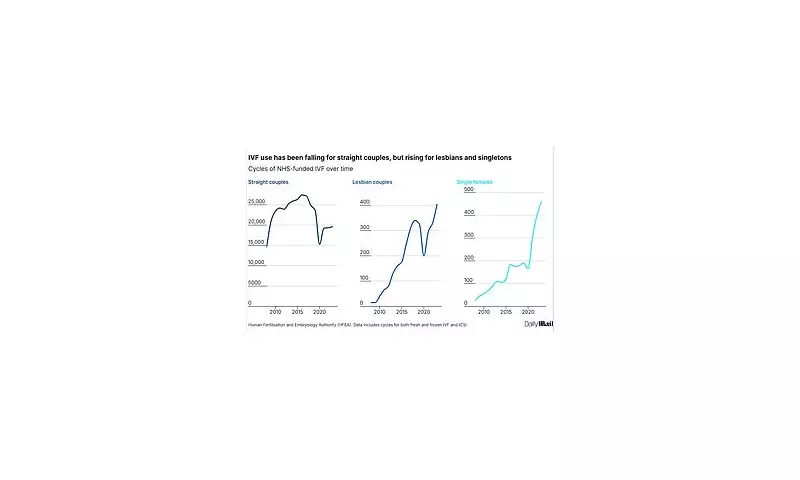
Single women hoping to start a family through IVF are facing an unequal battle against the NHS's postcode lottery, with new analysis revealing they wait significantly longer for treatment compared to couples in many parts of England.
The troubling disparities emerge despite repeated government assurances that the fertility treatment lottery would be eliminated, leaving many prospective mothers in limbo while their biological clocks continue ticking.
The Stark Reality of Regional Disparities
According to the detailed examination of NHS provision, the waiting time gap between single women and couples varies dramatically depending on where you live. Some integrated care boards (ICBs) impose waiting periods of up to three years for all patients, while others have abolished waiting lists entirely - creating a confusing patchwork of access across the country.
This inconsistent approach means a woman's chances of becoming a mother through NHS-funded IVF depend heavily on her geographical location and marital status, raising serious questions about healthcare equality.
The Human Cost of Delayed Dreams
For single women already facing the emotional and financial challenges of solo parenthood, these extended waiting periods add another layer of anxiety. The biological reality that fertility declines with age makes every month of delay potentially significant, turning what should be a supportive medical process into a race against time.
Many women report feeling penalised for not having a partner, despite having the same desire for motherhood and willingness to provide a loving home for a child.
A Broken Promise on Postcode Lotteries
The findings directly contradict the government's 2019 manifesto commitment to end the IVF postcode lottery. Instead of creating uniform access, the system continues to operate with wildly different criteria across England's 42 ICBs.
Some healthcare trusts have taken positive steps by eliminating waiting lists completely, demonstrating that equitable access is achievable. However, these remain isolated examples rather than the standard practice patients were promised.
The Way Forward for Fertility Equality
Campaigners and healthcare professionals are calling for urgent reform to create a consistent, fair approach to IVF provision across England. They argue that relationship status should not be a determining factor in access to fertility treatment, particularly when single women undergo the same medical procedures and demonstrate equal readiness for parenthood.
As the debate continues, thousands of women remain caught in a system that treats their dreams of motherhood differently based on their address and relationship status - a situation that many believe undermines the fundamental principles of the NHS.





